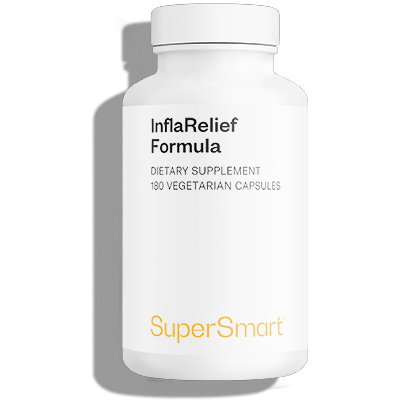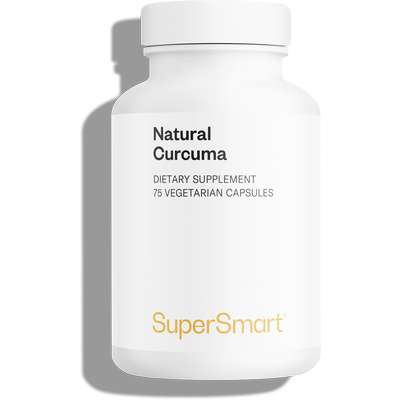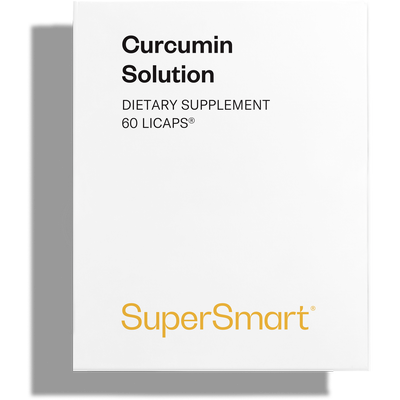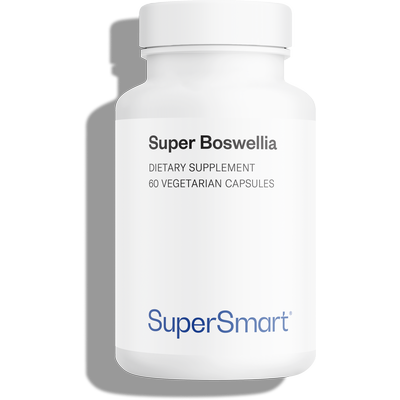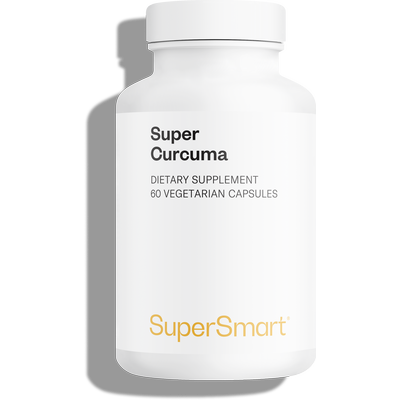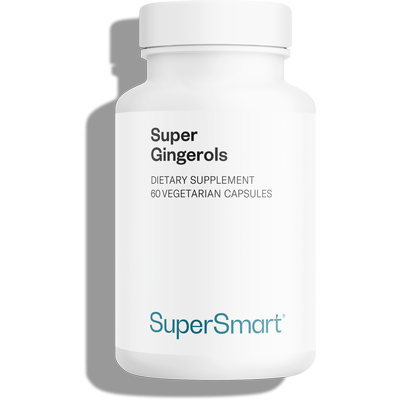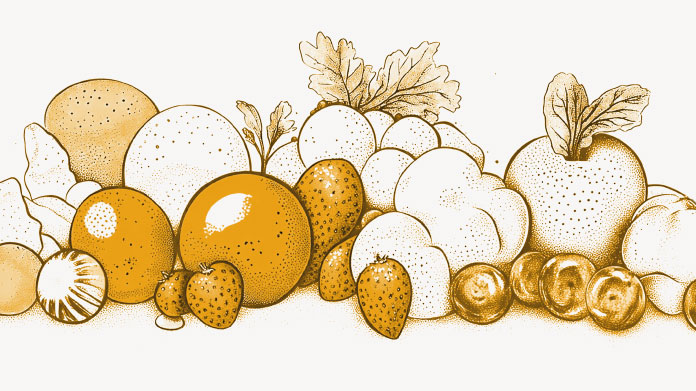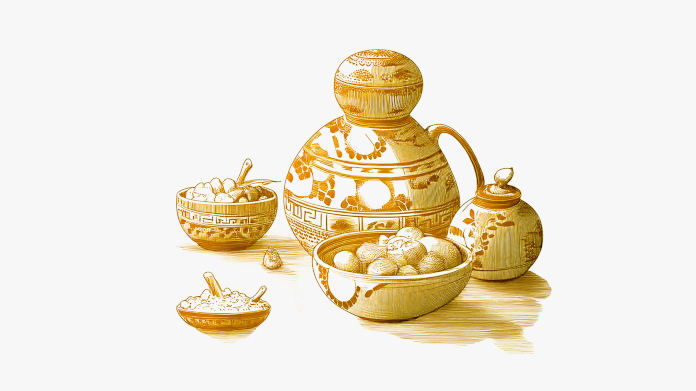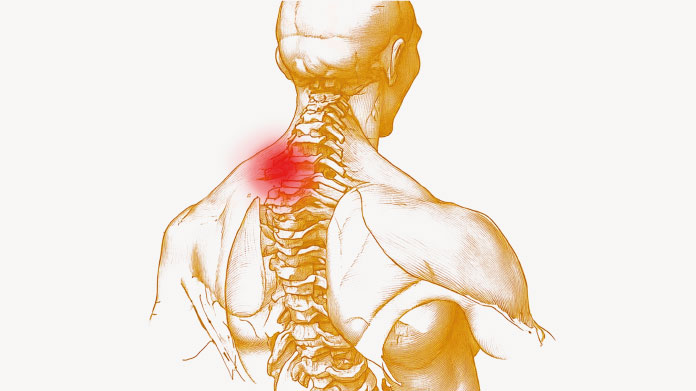Which is the most effective natural anti-inflammatory?
Herbal medicine has several strings to its bow when it comes to fighting inflammation. But is there one particular natural anti-inflammatory that’s more effective than all the others?
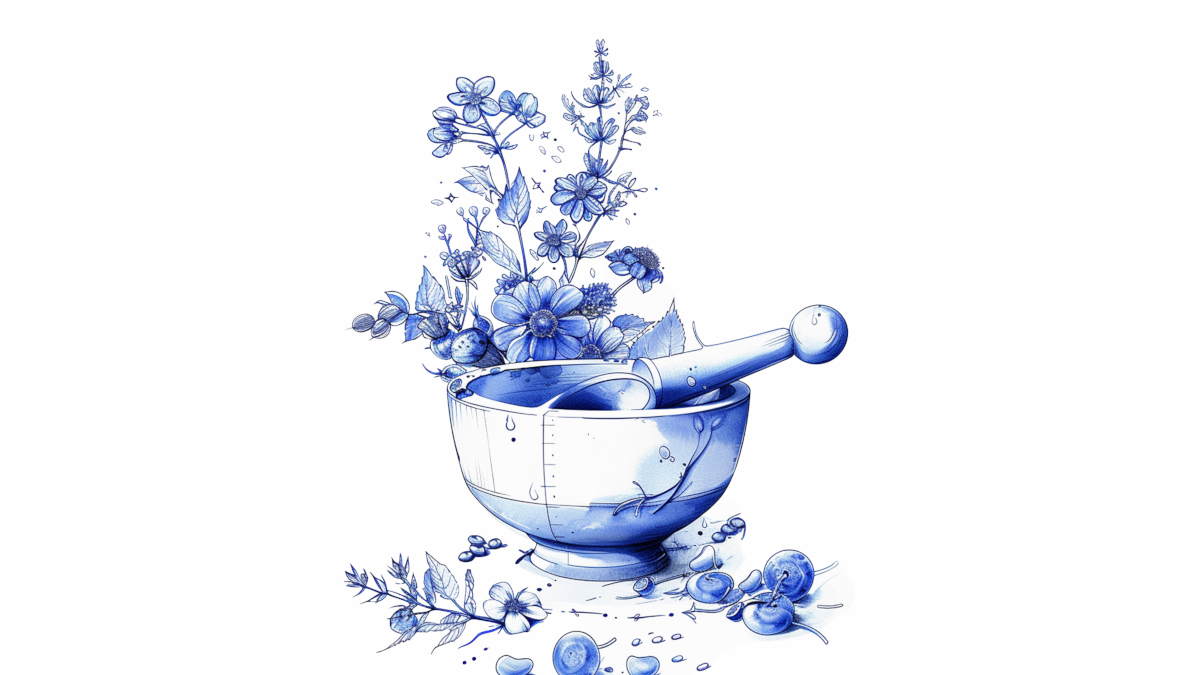
Reminder: what exactly is inflammation?
Inflammation is the immune system’s organised response to harmful stimuli (bacterial or viral infections, contact with an allergen, tissue damage, compression of the sciatic nerve…), the aim of which is to stimulate the healing process (1). It is characterised in the acute phase by redness, oedema or localised pain.
Sometimes, however, an inflammatory state can set in over time, very often silently, in which case we talk about low-grade or chronic inflammation. This forms the backdrop to disorders such as osteoarthritis, type 2 diabetes, allergies, cardiovascular conditions and auto-immune diseases (2).
A non-exhaustive list of powerful, natural anti-inflammatories
Before we get to the most effective natural anti-inflammatory of all, let’s take a look at two or three natural ingredients known for their anti-inflammatory effects.
Boswellia, the natural anti-inflammatory for the joints
Also known as the ‘frankincense tree’, Boswellia serrata is primarily associated with easing joint discomfort, though it also supports respiratory and intestinal function (3).
Its resin, boswellin, has a high content of boswellic acids, including 3-O-acetyl-11-keto-β-boswellic acid (AKBA) which is extremely biologically active (4). It is thought to have a positive effect on 5-lipoxygenase (5-LOX) and human leukocyte elastase (HLE), two enzymes involved in the inflammatory cascade (the supplement Super Boswellia is therefore standardised to 20% AKBA for maximum efficacy) (5).
Ginger, the star ingredient of home-made anti-inflammatory herbal teas
An infusion made from ginger (Zingiber officinale) is an iconic remedy in traditional Chinese medicine. And rightly so as this antioxidant and anti-inflammatory rhizome acts on all fronts: supporting immune, digestive and respiratory health, maintaining energy and vitality, regulating glucose metabolism (6-8)…
More recently, studies evaluating ginger’s efficacy in people prone to osteoarthritis and rheumatism (9-10) have produced encouraging results. This is thought to be because it inhibits the biosynthesis of prostaglandins and leukotrienes, two inflammatory mediators (plenty of reasons then to take Super Gingerols, a natural ginger extract standardised to 20% gingerols).
Meadowsweet, a natural anti-inflammatory for the muscles
The flowerheads of meadowsweet (Filipendula ulmaria) produce salicylic acid, the ‘natural aspirin’ largely responsible for the reputation of white willow bark. Meadowsweet has analgesic and anti-inflammatory properties which help relieve muscle soreness, properties thought to be due due to various inhibitory mechanisms (including of the enzyme COX-2 and the NF-κB signalling pathway) (11). It’s worth noting that its flavonoid glycosides may also interact with the gut microbiota, adding to its efficacy.
What is the most effective natural anti-inflammatory of all?
While the world’s pharmacopoeia list dozens of plants that can help combat inflammation, there is one rhizome that stands out, both in terms of efficacy and safety: turmeric.
The star of Ayurveda, this spice ranks among various Asian systems of medicine as a rare natural systemic anti-inflammatory able to act on all aspects of health. It is its main curcuminoid, curcumin, which is at the root of its various biological activities (12).
Several studies note its ability to inhibit the production of pro-inflammatory mediators (interleukins, TNF-α, G‐CSF, MCP-1…) and to interfere with certain inflammatory signalling pathways (13). Turmeric also protects immune function by acting as an immunomodulator that can rebalance cell populations: in particular, it is believed to restore balance to the ratio between regulatory T lymphocytes which suppress the inflammatory response and Th17 lymphocytes which induce it (14). Some studies also mention how, by boosting activity of antioxidant enzymes, it helps neutralise the reactive oxygen species (ROS) that generate oxidative stress and insidiously maintain inflammatory processes (15).
Turmeric and its ingredient curcumin are well-tolerated, and are currently the focus of many clinical trials investigating various diseases with an inflammatory component. Researchers are looking at potential applications in chronic intestinal inflammation, skin imbalances, joint discomfort, severe mood disorders and arterial stiffening (16-20).
How is turmeric best-absorbed?
While turmeric seems like the perfect natural remedy for inflammation, there is a ‘but’: curcumin unfortunately has low bioavailability. Manufacturers of high-quality supplements have, however, found several ways of countering this:
- by offering large amounts of turmeric while maximising the concentration of active principles per capsule (such as in Natural Curcuma, each daily dose of which contains 2500mg of turmeric standardised to 95% curcuminoids) ;
- by combining the turmeric with natural phosphatidylcholine to boost its absorption (using this innovative process, the patented supplement Super Curcuma offers a level of uptake 29 times higher than standard supplements) (21) ;
- by presenting the curcumin in micelle form to improve its solubility in intestinal fluids and make it easier for it to cross the intestinal wall (185 times more absorbable than standard curcumin, Curcumin Solution is currently the most bioavailable curcumin supplement on the market) (22).
Finally, it’s worth remembering that we all react differently to anti-inflammatories (natural or otherwise). They seem to be more effective in some people than others depending on individual sensitivity. It therefore makes sense to use a broad spectrum of active compounds to maximise your response (the powerful synergistic supplement InflaRelief combines turmeric with 11 other carefully-selected natural substances such as cat’s claw, nettle, tulsi and rosemary) (23-26).
SUPERSMART ADVICE
References
- Stone WL, Basit H, Burns B. Pathology, Inflammation. [Updated 2022 Nov 14]. In: StatPearls [Internet]. Treasure Island (FL): StatPearls Publishing; 2023 Jan-. Available from: https://www.ncbi.nlm.nih.gov/books/NBK534820/
- Pahwa R, Goyal A, Jialal I. Chronic Inflammation. [Updated 2022 Aug 8]. In: StatPearls [Internet]. Treasure Island (FL): StatPearls Publishing; 2023 Jan-. Available from: https://www.ncbi.nlm.nih.gov/books/NBK493173/
- Siddiqui MZ. Boswellia serrata, a potential antiinflammatory agent: an overview. Indian J Pharm Sci. 2011 May;73(3):255-61. doi: 10.4103/0250-474X.93507. PMID: 22457547; PMCID: PMC3309643.
- Sailer ER, Subramanian LR, Rall B, Hoernlein RF, Ammon HP, Safayhi H. Acetyl-11-keto-beta-boswellic acid (AKBA): structure requirements for binding and 5-lipoxygenase inhibitory activity. Br J Pharmacol. 1996 Feb;117(4):615-8. doi: 10.1111/j.1476-5381.1996.tb15235.x. PMID: 8646405; PMCID: PMC1909340.
- Gomaa AA, Mohamed HS, Abd-Ellatief RB, Gomaa MA. Boswellic acids/Boswellia serrata extract as a potential COVID-19 therapeutic agent in the elderly. 2021 Aug;29(4):1033-1048. doi: 10.1007/s10787-021-00841-8. Epub 2021 Jul 5. PMID: 34224069; PMCID: PMC8256410.
- Mashhadi NS, Ghiasvand R, Askari G, Hariri M, Darvishi L, Mofid MR. Anti-oxidative and anti-inflammatory effects of ginger in health and physical activity: review of current evidence. Int J Prev Med. 2013 Apr;4(Suppl 1):S36-42. PMID: 23717767; PMCID: PMC3665023.
- Nikkhah Bodagh M, Maleki I, Hekmatdoost A. Ginger in gastrointestinal disorders: A systematic review of clinical trials. Food Sci Nutr. 2018 Nov 5;7(1):96-108. doi: 10.1002/fsn3.807. PMID: 30680163; PMCID: PMC6341159.
- Khandouzi N, Shidfar F, Rajab A, Rahideh T, Hosseini P, Mir Taheri M. The effects of ginger on fasting blood sugar, hemoglobin a1c, apolipoprotein B, apolipoprotein a-I and malondialdehyde in type 2 diabetic patients. Iran J Pharm Res. 2015 Winter;14(1):131-40. PMID: 25561919; PMCID: PMC4277626.
- Bartels EM, Folmer VN, Bliddal H, Altman RD, Juhl C, Tarp S, Zhang W, Christensen R. Efficacy and safety of ginger in osteoarthritis patients: a meta-analysis of randomized placebo-controlled trials. Osteoarthritis Cartilage. 2015 Jan;23(1):13-21. doi: 10.1016/j.joca.2014.09.024. Epub 2014 Oct 7. PMID: 25300574.
- Srivastava KC, Mustafa T. Ginger (Zingiber officinale) in rheumatism and musculoskeletal disorders. Med Hypotheses. 1992 Dec;39(4):342-8. doi: 10.1016/0306-9877(92)90059-l. PMID: 1494322.
- Van der Auwera A, Peeters L, Foubert K, Piazza S, Vanden Berghe W, Hermans N, Pieters L. In Vitro Biotransformation and Anti-Inflammatory Activity of Constituents and Metabolites of Filipendula ulmaria. 2023 Apr 20;15(4):1291. doi: 10.3390/pharmaceutics15041291. PMID: 37111776; PMCID: PMC10146082.
- Peng Y, Ao M, Dong B, Jiang Y, Yu L, Chen Z, Hu C, Xu R. Anti-Inflammatory Effects of Curcumin in the Inflammatory Diseases: Status, Limitations and Countermeasures. Drug Des Devel Ther. 2021 Nov 2;15:4503-4525. doi: 10.2147/DDDT.S327378. PMID: 34754179; PMCID: PMC8572027.
- Panahi Y, Hosseini MS, Khalili N, Naimi E, Simental-Mendía LE, Majeed M, Sahebkar A. Effects of curcumin on serum cytokine concentrations in subjects with metabolic syndrome: A post-hoc analysis of a randomized controlled trial. Biomed Pharmacother. 2016 Aug;82:578-82. doi: 10.1016/j.biopha.2016.05.037. Epub 2016 Jun 6. PMID: 27470399.
- Momtazi-Borojeni AA, Haftcheshmeh SM, Esmaeili SA, Johnston TP, Abdollahi E, Sahebkar A. Curcumin: A natural modulator of immune cells in systemic lupus erythematosus. Autoimmun Rev. 2018 Feb;17(2):125-135. doi: 10.1016/j.autrev.2017.11.016. Epub 2017 Nov 24. PMID: 29180127.
- Nakamae I, Morimoto T, Shima H, Shionyu M, Fujiki H, Yoneda-Kato N, Yokoyama T, Kanaya S, Kakiuchi K, Shirai T, Meiyanto E, Kato JY. Curcumin Derivatives Verify the Essentiality of ROS Upregulation in Tumor Suppression. 2019 Nov 10;24(22):4067. doi: 10.3390/molecules24224067. PMID: 31717651; PMCID: PMC6891586.
- Lin Y, Liu H, Bu L, Chen C, Ye X. Review of the Effects and Mechanism of Curcumin in the Treatment of Inflammatory Bowel Disease. Front Pharmacol. 2022 Jun 20;13:908077. doi: 10.3389/fphar.2022.908077. PMID: 35795556; PMCID: PMC9250976.
- Zhang S, Wang J, Liu L, Sun X, Zhou Y, Chen S, Lu Y, Cai X, Hu M, Yan G, Miao X, Li X. Efficacy and safety of curcumin in psoriasis: preclinical and clinical evidence and possible mechanisms. Front Pharmacol. 2022 Aug 29;13:903160. doi: 10.3389/fphar.2022.903160. PMID: 36120325; PMCID: PMC9477188.
- Perkins K, Sahy W, Beckett RD. Efficacy of Curcuma for Treatment of Osteoarthritis. J Evid Based Complementary Altern Med. 2017 Jan;22(1):156-165. doi: 10.1177/2156587216636747. Epub 2016 Mar 14. PMID: 26976085; PMCID: PMC5871206.
- Lopresti AL. Potential Role of Curcumin for the Treatment of Major Depressive Disorder. CNS Drugs. 2022 Feb;36(2):123-141. doi: 10.1007/s40263-022-00901-9. Epub 2022 Feb 7. PMID: 35129813; PMCID: PMC8863697.
- Singh L, Sharma S, Xu S, Tewari D, Fang J. Curcumin as a Natural Remedy for Atherosclerosis: A Pharmacological Review. 2021 Jul 1;26(13):4036. doi: 10.3390/molecules26134036. PMID: 34279384; PMCID: PMC8272048.
- Belcaro G, Cesarone MR, Dugall M, Pellegrini L, Ledda A, Grossi MG, Togni S, Appendino G. Efficacy and safety of Meriva®, a curcumin-phosphatidylcholine complex, during extended administration in osteoarthritis patients. Altern Med Rev. 2010 Dec;15(4):337-44. PMID: 21194249.
- Schiborr C, Kocher A, Behnam D, Jandasek J, Toelstede S, Frank J. The oral bioavailability of curcumin from micronized powder and liquid micelles is significantly increased in healthy humans and differs between sexes. Mol Nutr Food Res. 2014 Mar;58(3):516-27. doi: 10.1002/mnfr.201300724. Epub 2014 Jan 9. Erratum in: Mol Nutr Food Res. 2014 Mar;58(3):647. Dosage error in article text. PMID: 24402825.
- Sandoval-Chacón M, Thompson JH, Zhang XJ, Liu X, Mannick EE, Sadowska-Krowicka H, Charbonnet RM, Clark DA, Miller MJ. Antiinflammatory actions of cat's claw: the role of NF-kappaB. Aliment Pharmacol Ther. 1998 Dec;12(12):1279-89. doi: 10.1046/j.1365-2036.1998.00424.x. PMID: 9882039.
- Semwal P, Rauf A, Olatunde A, Singh P, Zaky MY, Islam MM, Khalil AA, Aljohani ASM, Al Abdulmonem W, Ribaudo G. The medicinal chemistry of Urtica dioica L.: from preliminary evidence to clinical studies supporting its neuroprotective activity. Nat Prod Bioprospect. 2023 May 12;13(1):16. doi: 10.1007/s13659-023-00380-5. PMID: 37171512; PMCID: PMC10176313.
- Jamshidi N, Cohen MM. The Clinical Efficacy and Safety of Tulsi in Humans: A Systematic Review of the Literature. Evid Based Complement Alternat Med. 2017;2017:9217567. doi: 10.1155/2017/9217567. Epub 2017 Mar 16. PMID: 28400848; PMCID: PMC5376420.
- Ghasemzadeh Rahbardar M, Hosseinzadeh H. Therapeutic effects of rosemary (Rosmarinus officinalis L.) and its active constituents on nervous system disorders. Iran J Basic Med Sci. 2020 Sep;23(9):1100-1112. doi: 10.22038/ijbms.2020.45269.10541. PMID: 32963731; PMCID: PMC7491497.
Keywords
15 Hours
great experience
Easy ordering, fast deliver, very professionally.
Natasa
3 Days
this company and its products are…
this company and its products are perfect: I have been their customer for three years , prices are reasonable for the high quality they offer , the products are of very good quality not just plainly "normal" , delivery is quite fast. we are very satisfied with them.
Gabriel Diacakis
4 Days
TOP service TOP products will buy again…
TOP service TOP products will buy again and again
PINOTTI Giorgio
6 Days
Trustworthy company with tested products
Trustworthy company with tested products
Trusted
10 Days
Efficiency and speed
Efficiency and speed
Cuccie
12 Days
GOOD BRAND IN FOOD COMPLEMENTS
GOOD BRAND IN FOOD COMPLEMENTS - SERIOUS WITH GOOD DOCUMENTS AND DETAILS SCIENTIST. AND SERIOUS HONNEST COMMERZIALISATION. I HAVE TRUST IN THEIR PRODUCTS.
FENOGLIO Guy
14 Days
Very good experience
Very good experience, the products arrived in time, in perfect condition and are good quality. Thank you.
GABI TIRCOCI
19 Days
very good expereince
very good expereince
Jelena Đaković
19 Days
Very good products.
Very good products.
Agnes BENDSAK
21 Days
Just OK
Just OK, ordering from company for many years and being safisfied
Lynn Mae
22 Days
Recomendo
Produtos encomendados são recebidos atempadamente e de acordo com o anunciado! Muito satisfeita!
Carla Sofia
23 Days
Everything is great!
Everything is great!
Jonas
28 Days
The delivery was fast and the product…
The delivery was fast and the product is great
SOMMARIVA Gianni
29 Days
Great service and lots of information
Great service and lots of information
Gabi
32 Days
Service Satisfaction
I’m satisfied with the service; it fulfilled what it set out to do.
Anfhony Abreu
of experience
your money back
##montant## purchase


